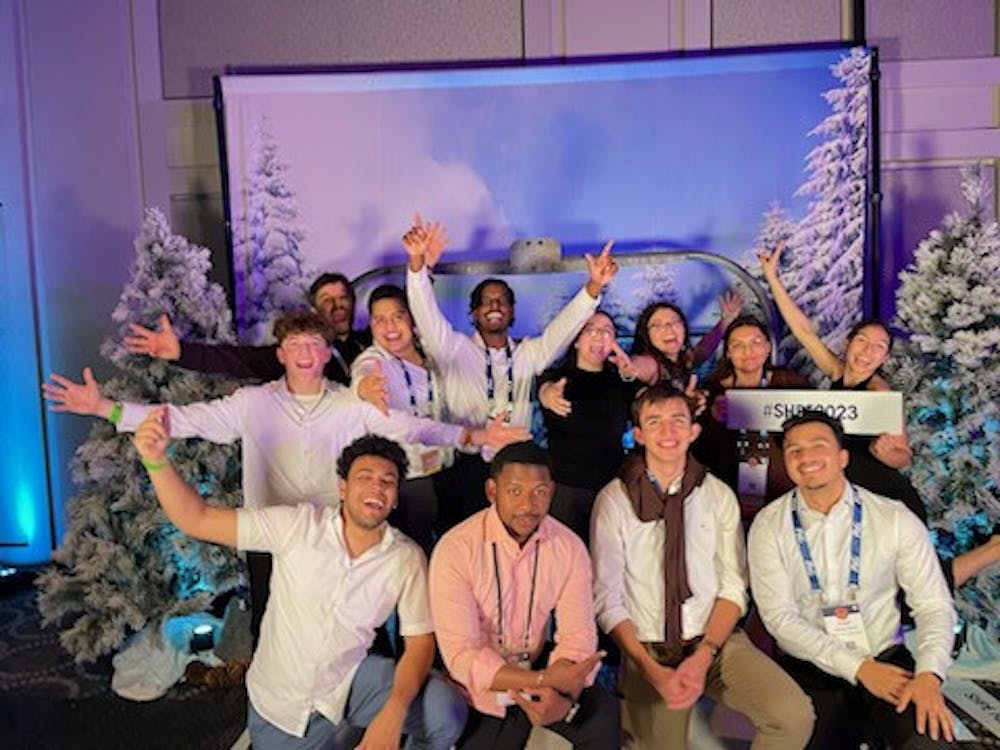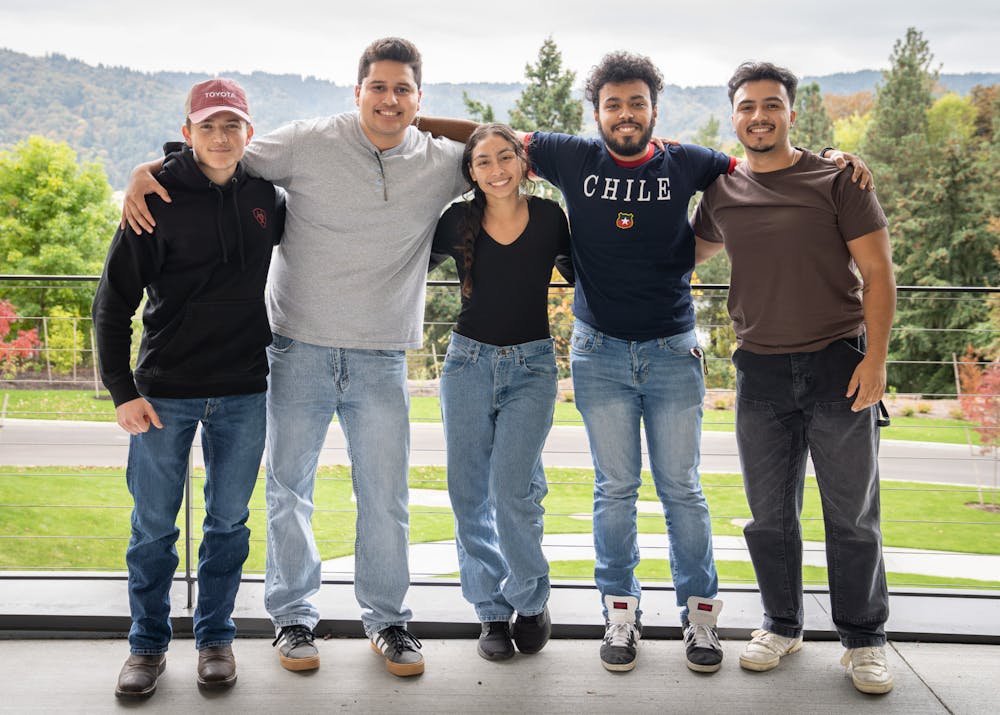Latino representation in engineering is scarce. Currently, Latinos make up 9.4% of the engineering workforce in the United States.
However, a 2023 report by the Society of Hispanic Professional Engineers (SHPE) found that Latino enrollment in undergraduate engineering programs increased by 73.6% between 2010 and 2021.
Members of UP’s chapter of SHPE are ready to continue to be part of this shift.
The chapter and non-profit organization aims to empower Latinos in STEM in reaching their career goals by offering professional development resources such as resume workshops, career fairs and other similar events.
While SHPE’s goal is to open the door for more Latinos to pursue a successful career in STEM, members say they continue to feel excluded in the field.
Josue Rocha, a senior civil engineering major and member of UP's SHPE chapter, witnessed firsthand the underrepresentation in his summer internship and reflected on being one of the only Latinos at the company.
As of 2021, 71% of professional engineers identify as white, compared to only 29% who identify as non-white. Additionally, 7.7% of people in engineering and science occupations identify as women.
"It's a predominantly white and male-dominated industry,” Rocha said. “So definitely just from an ethnic perspective, I felt like I wasn't supposed to be there.”
Being a part of a minority group is often one of the reasons people develop imposter syndrome, a phenomenon described as the self-doubt of intellect, skills, or accomplishments among high-achieving individuals.
For Danielle Resendiz, president of UP's SHPE chapter, she finds herself motivated by the imposter syndrome that comes with both being a Latina and a woman in engineering.
“It kind of pushes me to do more,” Resendiz said. “We're such a big portion of the world that not being represented is kind of crazy, and we should be up there.”
Angel Jaime-Horta, treasurer of SHPE, is encouraged by the community he’s found and thinks it is one of the most important things that the chapter offers. For him, the community provides support beyond academics.
It also supports him mentally and emotionally.
“I think the most important part is just the connections made within the [chapter],” Jaime-Horta said. “I just got really close with everyone within the [chapter and] they're some of my closest friends.”
Family is a large part of Latino culture. It can be a source of support, guidance and encouragement. For Pablo Benitez, SHPE’s secretary, his family encourages him to pursue a career in STEM.
Having family in the engineering field in Chile inspired him to also choose an engineering path. When he finds himself struggling in difficult classes, keeping his family in mind pushes him to persevere and stay motivated.
“Whenever I come down to hard times or [I’m] thinking, ‘Dang, I might not be able to do this,’ I'll be like, ‘I want to make money to take care of my mom,’” Benitez said.
Anthony Lucero, SHPE’s vice president, feels that he has found a second family through the chapter.
“We're not a huge [chapter],” Lucero said. “There's not a lot of [Latino engineers] but everybody loves each other. We all lean on each other for everything [and] we have a real community.”
This year's Hispanic Heritage month theme is “Pioneers of Change: Shaping the Future Together.” The theme reflects the innovation, resilience, and unity that define the Hispanic experience.
Rocha believes that having a Latino community in the workplace will create a space for them to be able to express their cultural identity in the future.
“Hopefully, [by] creating that community, we can also change the companies or the industry we work within and have our values reflected more in the industry or company,” Rocha said.
Latinos have been stereotyped as domestic or physical laborers. This includes jobs such as housekeeping and construction. Resendiz hopes to encapsulate the theme of Hispanic Heritage Month by changing the norm for Latinos in the workforce. For her, it is crucial to demonstrate that Latinos are capable of surpassing negative expectations.
“I think in STEM, we have that huge [push] for us to not just be the working class, but for us to be able to aspire to be better,” Resendiz said. “Whether that's financially or mentally, just [being] in a better spot, because we deserve it.”
Witnessing other Latinos in positions of power is inspiring; it shows that through hard work, people of all backgrounds can make it, according to Benitez.
In the past, members of SHPE have had the opportunity to meet Latinos in senior positions in STEM-related fields personally during the national organization’s annual convention.

“They're putting in the work,” said Benitez. “If we don't put in the work, then we probably won't be able to see many other Latino students trying to be in those positions.”
The SHPE National Convention brings chapters nationwide together to gather and participate in professional development workshops, networking opportunities and a career fair. This year, UP’s SHPE chapter will travel to Anaheim, California for the convention’s 50th anniversary.
“[We’re] excited because it's good to get some role models,” Jaime-Horta said. “If [other students] can see a Latino in a higher position, they can probably think they also have the ability to get there.”
SHPE prides itself on being a resource for Latinos in STEM. UP’s SHPE board encourages anyone to join and take advantage of the help they offer.
“SHPE is just this big umbrella of legacies and untapped potential that everybody should be a part of if you're Latino and in STEM,” Lucero said.
Samantha Zavala is a reporter at The Beacon. She can be reached at zavala27@up.edu.
Tiffany Marquez Escobar is the Diversity, Equity & Inclusion Editor for The Beacon. She can be reached at marqueze25@up.edu.








